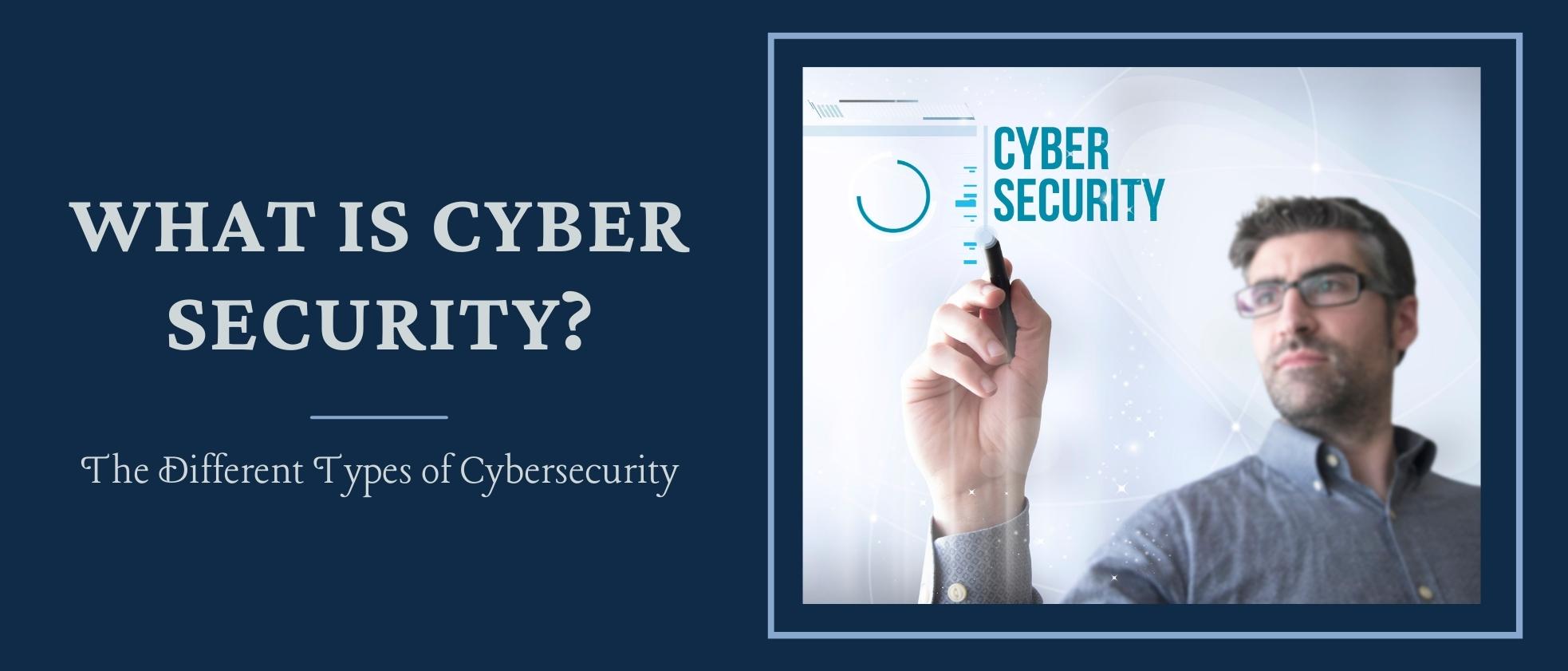What is Cyber Security? The Different Types of Cybersecurity

Cybersecurity has become one of the most important concerns of the modern world, as technology continues to advance, and more and more data is stored and transmitted online. But what is cybersecurity, exactly? And why is it so important? In this blog, we'll explore these questions and take a look at the different types of cybersecurity that exist.
So, what is cybersecurity? At its core, cybersecurity is the practice of protecting computer systems and networks from unauthorized access or attacks. This can include everything from protecting personal information stored on your laptop to securing the databases of multinational corporations. Cybersecurity is a complex and ever-evolving field, and it requires constant vigilance to stay ahead of the latest threats.
But why is cybersecurity so important? The answer is simple: because we rely so heavily on technology in our day-to-day lives. We use computers and mobile devices for everything from online shopping to banking to communicating with friends and family. All of these activities involve the transmission of personal and sensitive information, and if that information falls into the wrong hands, it can lead to all sorts of problems, from identity theft to financial loss to reputational damage.
So, how do we protect ourselves and our data from cyber attacks? That's where the different types of cybersecurity come in. Let's take a closer look at each one.
- Network security: Network security is all about protecting the network infrastructure itself. This includes things like firewalls, intrusion detection systems, and VPNs (virtual private networks) that allow employees to securely access the company network from remote locations. Network security is a critical component of any cybersecurity strategy, as it helps prevent unauthorized access to sensitive data.
- Application security: Application security focuses on securing the software and applications that run on our devices. This can include everything from antivirus software to web application firewalls to secure coding practices that minimize the risk of vulnerabilities. Application security is particularly important for organizations that develop their own software, as a single vulnerability can have far-reaching consequences.
- Cloud security: With the rise of cloud computing, cloud security has become a critical concern for many organizations. Cloud security involves protecting the data and applications that are stored in the cloud, as well as ensuring that the cloud infrastructure itself is secure. This can include things like encryption, access controls, and monitoring for suspicious activity.
- Endpoint security: Endpoint security is all about protecting the devices themselves, such as laptops, smartphones, and tablets. This can include things like antivirus software, firewalls, and intrusion detection systems, as well as best practices for things like password management and device encryption.
- Data security: Data security is perhaps the most important aspect of cybersecurity, as it involves protecting the sensitive information that is stored and transmitted online. This can include everything from personal data like social security numbers and credit card information to corporate data like trade secrets and financial records. Data security involves a wide range of techniques and technologies, from encryption to access controls to data backup and recovery.
One more important point to consider is that cybersecurity is not a one-time job, but an ongoing process. As technology continues to evolve, so do the methods and tools that cyber criminals use to gain unauthorized access to sensitive data. Therefore, it's crucial to continuously monitor and update security measures, implement new technologies and strategies, and stay up to date with the latest threats and best practices.
Furthermore, cybersecurity is not only a reactive approach but also a proactive one. Cyber security consulting services in India will surely help organizations and individuals to take preventive measures to minimize the risk of cyber-attacks, such as regular vulnerability assessments, security audits, and training employees to recognize and respond to potential threats.
In conclusion, cybersecurity is a complex and ever-evolving field that requires constant attention and vigilance. By understanding the different types of cybersecurity and implementing best practices to protect our data and devices, we can help ensure that our online activities remain safe and secure. With increasing focus on compliance and regulatory requirements it will be important for businesses and organizations to stay secure in 2023. Cyber security companies in Pune will play a key role in helping to protect businesses and organizations from cyber-attacks, and the best cyber security company in India will be one that can provide a comprehensive range of services to meet the specific needs of their clients.
ANA Cyber Forensic Pvt Ltd is one of the leading Indian cyber security services companies that provide best solutions to protect your business form security threat. For more information call us at +91 – 90110 41569
Contact
For more information on how we can help you secure your data, get you compliant and protect your business, please complete the form below and one of Information security / Cyber Forensic expert and Compliance specialists will respond to you as soon as possible.


